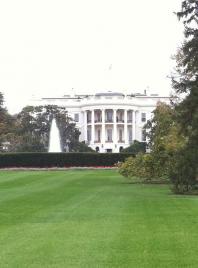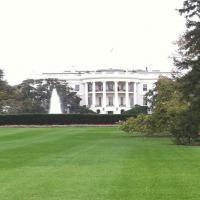How Do COVID-Related Flexibilities Allowed Under M-21-20 Differ from M-20-17?

When discussing Office of Management and Budget (OMB) developments over the past year to attendees at the National Grants Management Association's Annual Training Conference on Wednesday, Gil Tran of OMB’s Office of Federal Financial Management addressed flexibilities that federal agencies can implement to provide assistance to grant recipients impacted by the COVID-19 pandemic. These flexibilities are allowed as part of OMB Memorandum M-21-20, which also stresses the importance of equity in grantmaking. While many of the flexibilities are similar to those offered under the now-expired OMB Memorandum M-20-17, issued in March 2020, Tran highlighted five differences between the two sets of guidance.
Tran mentioned flexibilities under M-20-17 that are not included in M-21-20. M-21-20 does not include the following three flexibilities that were offered as part of M-20-17:
- Allowability of salaries and other project activities (§§200.403-200.405) — Awarding agencies under M-20-17 could allow recipients to charge salaries and benefits to active federal awards consistent with the recipients’ policy of paying salaries (under unexpected or extraordinary circumstances) from all funding sources, either federal or nonfederal. Further, recipients could charge other costs to federal awards necessary to resume activities supported by the award, consistent with applicable federal cost principles and the benefit to the project.
- Allowability of costs not normally chargeable to awards (§§200.403, 200.404, 200.405) — Awarding agencies under M-20-17 could allow recipients who incur costs when events, travel or other activities necessary and reasonable for the performance of the award are cancelled, or when grant-funded activities are paused and restarted due to the public health emergency, to charge these costs to their award without regard to the cost allowability provisions (§§200.403-200.405).
- Extension of currently approved indirect cost rates (§200.414(c)) — Awarding agencies under M-20-17 could allow recipients to continue to use their approved indirect cost rates to recover their indirect costs on federal awards for an additional year without requiring submission of an indirect cost proposal, and grantee requests for an extension of time to finalize the current rates and establish future rates.
While M-21-20 does enable agencies to offer the other flexibilities found under M-20-17 (e.g., flexibility with SAM registration, application deadlines, abbreviated non-competitive continuation requests, etc.), Tran noted that M-21 also includes a new flexibility relating to the management requirement for physical inventories. Awarding agencies may provide grantees up to a 12-month extension for the biennial physical inventory of equipment purchased under a federal award (§200.313(d)(2)).
M-21-20 also updates a provision allowed under M-20-17 pertaining to a single audit submission flexibility (§200.501). M-21-20 states that awarding agencies, in their capacity as cognizant or oversight agency for audit, should allow recipients and subrecipients that have not yet filed their single audits with the Federal Audit Clearinghouse as of March 19 that have fiscal year-ends through June 30 to delay the completion and submission of the single audit reporting package to six months beyond the normal due date. For example, a nonfederal entity with a fiscal year-end of June 30, 2021, would have an initial single audit due date of March 31, 2022, but the memorandum would extend this due date to Sept. 30, 2022. Similar to the language in M-20-17, no further action by awarding agencies is required to enact this extension, and recipients and subrecipients are not required to seek approval for the extension by the cognizant or oversight agency for audit. However, recipients and subrecipients should maintain documentation of the reason for the delayed filing. Recipients and subrecipients taking advantage of this extension would still qualify as “low-risk auditees” (§200.520(a)).
Grant recipients should be aware that their federal awarding agency must accept these flexibilities to make them available to their grantees. Not all agencies will implement them in the same way, and agencies will inform OMB which of the flexibilities they will use. Thompson Grants has included M-21-20 in its “Guidance and Regulations” section of the Grants Compliance Expert (and has retained M-20-17 for comparison), and recently provided articles providing analysis on the flexibilities and other details under M-20-17 (“M-21-20 Again Enables Agencies To Offer Administrative Relief”). Thompson Grants will also provide more information on agency implementation of M-21-20 as it becomes available.
Join us for our following Thompson Grants event:
Virtual Federal Grants Forum: For State & Local Governments | May 11 - 12, 2021
Federal Grants Forum For Institutions of Higher Education | July 21 - 22, 2021



